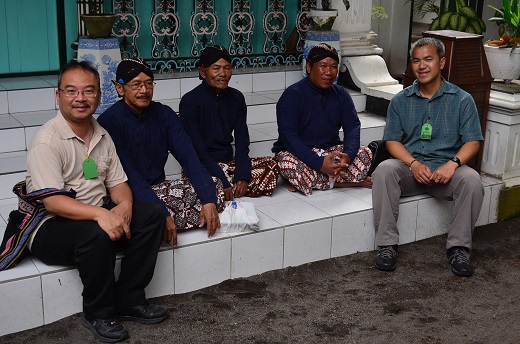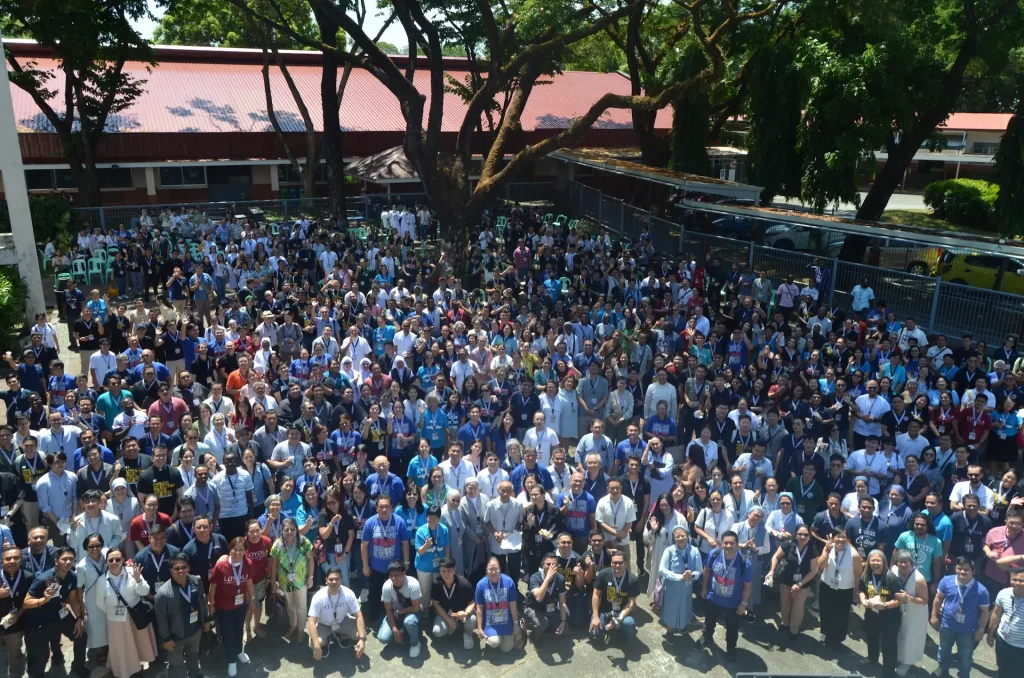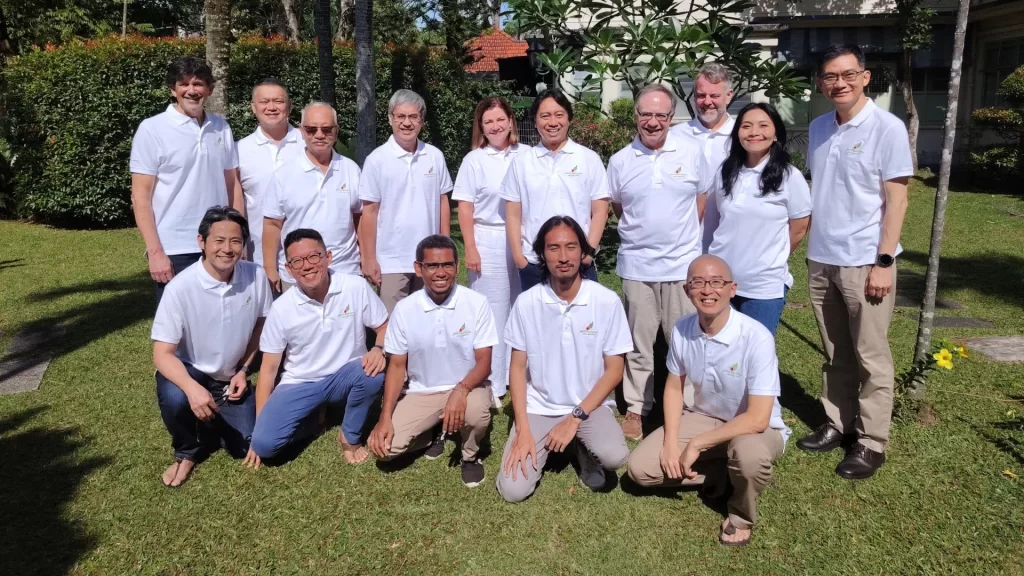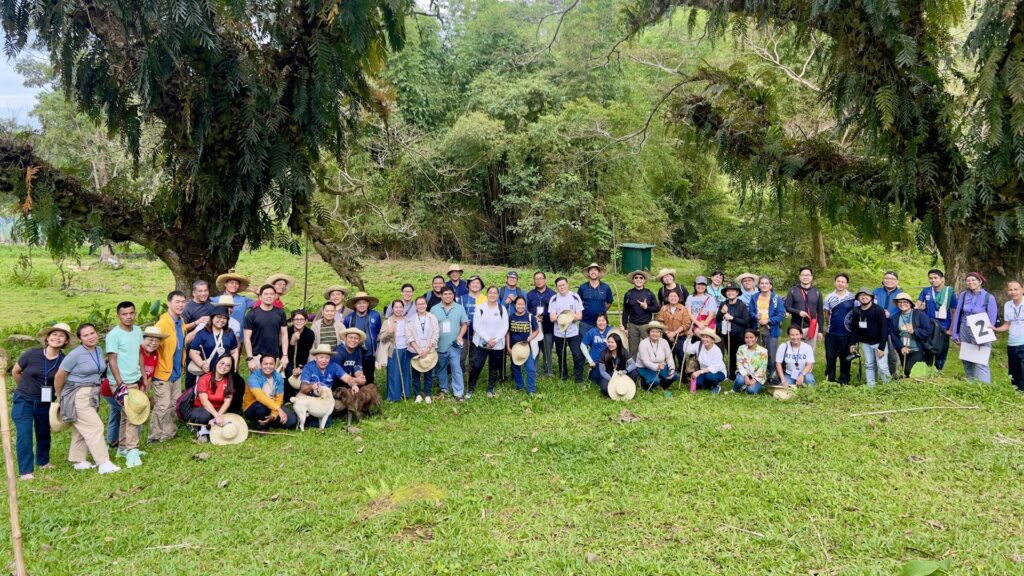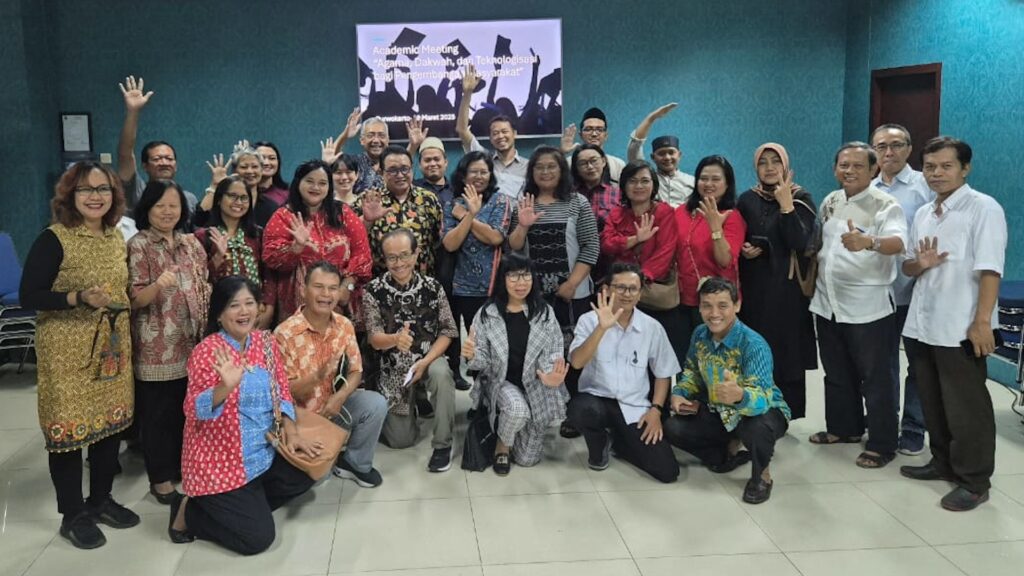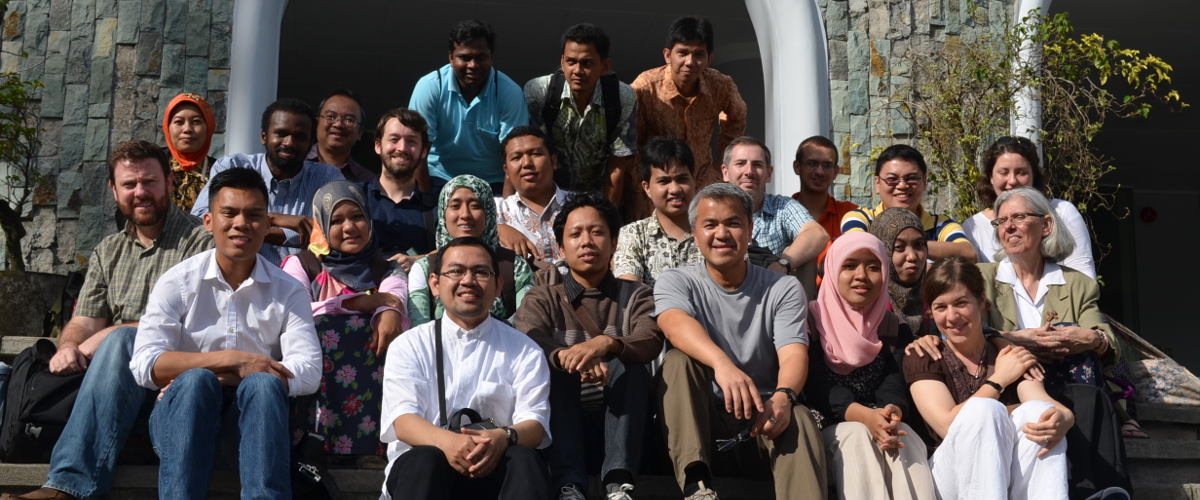
The 2015 Indonesia Immersion is part of a theological immersion program the Jesuit School of Theology has run for more than a decade to provide its students with a unique opportunity to study an Asian religious tradition in its local context. The annual program begins with course work during the fall semester in Berkeley, California followed by a three-to-four-week immersion in a particular country in January. During the immersion, students have opportunities to experience interfaith relations in its local, contextualized setting through interaction with local communities and institutions. Other immersions include encountering Hindus and Sikhs in India, Jews and Muslims in the Middle East, and Tibetan Buddhists in Nepal.
Two faculty members of the Graduate Theological Union led the group during the immersion from January 2 to 22 – Fr Anh Tran SJ of the Jesuit School of Theology and Sr Marianne Farina CSC of the Dominican School of Philosophy and Theology. Two Indonesian Jesuits – Fr Heru Prakosa SJ, Coordinator of Dialogue with Islam for the Jesuit Conference of Asia Pacific, and Fr Bagus Laksana SJ – coordinated the on-site immersion activities in partnership with Sanata Dharma University and the Indonesian Consortium for Religious Studies of Universitas Gadjah Mada.
This year’s immersion in Indonesia was themed “A Common Word”, a phrase inspired by the open letter 138 Muslim scholars and religious leaders wrote to Christians in 2007 as a response to Pope Benedict XVI’s Regensburg address. By using a Muslim document, rather than Catholic magisterial teachings, the students were prepared to dialogue with Muslims on the ground, using their methodology and approach.
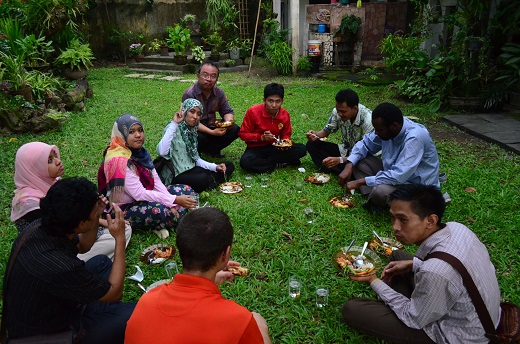
The second week was devoted to meetings with more of the local people and pilgrimages and visits to holy sites around Yogyakarta. JST students visited the Prambanan Hindu temple complex, Borobadur Buddhist stupa, Tembayat Muslim shrine, Catholic shrines of Sacred Heart in Ganjuran and of Mary in Sendangsono (Muntilan). These places continue to be sacred for Hindus, Buddhists, Muslims and Christians today. There were also cultural exchanges, which included trips to the Royal Palace of Yogyakarta, a farm commune in Ganjuran and various local mosques, Islamic boarding houses and churches. These visits helped students connect to the revered spiritual consciousness embedded in the history and culture of the Javanese.
The students spent the final week making an interreligious retreat at a Franciscan retreat house, jointly guided by a Muslim professor and a Catholic nun to meditate on words of wisdom from scriptural texts and spiritual writings from both traditions. It was a time to integrate the immersion experience into their spiritual lives.
Throughout the three weeks in Indonesia, JST students had opportunities to experience the four-fold dialogue promoted by the Church – the dialogues of life, of religious experience, of theological exchanges and of common action.
Jason Welle SJ, a scholastic from the Oregon Jesuit Province, was struck by how prayer and spirituality are part of life in Indonesia.
“The cry of the muezzin, the toll of the bells. The singing that calls Muslims to prayer, and the tolling that calls Christians. … What at first seemed like an interruption – coming at 4 o’clock in the morning with the adhan, followed at 5 by the church bells – developed by the end of our experience into an acknowledgment that prayer and spirituality infiltrate the lives of Indonesians, be they Muslim or Christian,” he said. “Religious identity (here) forms a part of cultural and national identity in a holistic way that for Americans is distinct from secular identity. We saw this in the daily lives of the Indonesians we dialogued with. We saw this in the historical religious sites we visited, and we saw this in the mosques, churches, and pilgrimage sites we visited as part of our immersion experience.”
The Indonesia Immersion had been a life-changing experience for most of the students. As Fr Tran shared, “Not only did they gain insight into their own identity, but they also learned how to deal with ‘otherness’. The experience inspired them to re-commit to all types of dialogue that can promote openness to different faiths and practices. The lessons from Yogyakarta will be with them beyond their ministerial formation and academic learning.”
“Dialogue is not simply learning about religious traditions but allowing this learning to form us from within our own tradition in ways that witness to the need for our communities to be transformed,” Fr Tran explained. “Each encounter with the other, great or small, is an opportunity for a conversion of the heart necessary to live with other cultures and religion authentically and fruitfully.”
For more information on the Jesuit School of Theology Interreligious Immersion Program, go to http://www.scu.edu/jst/academics/immersions/index.cfm

